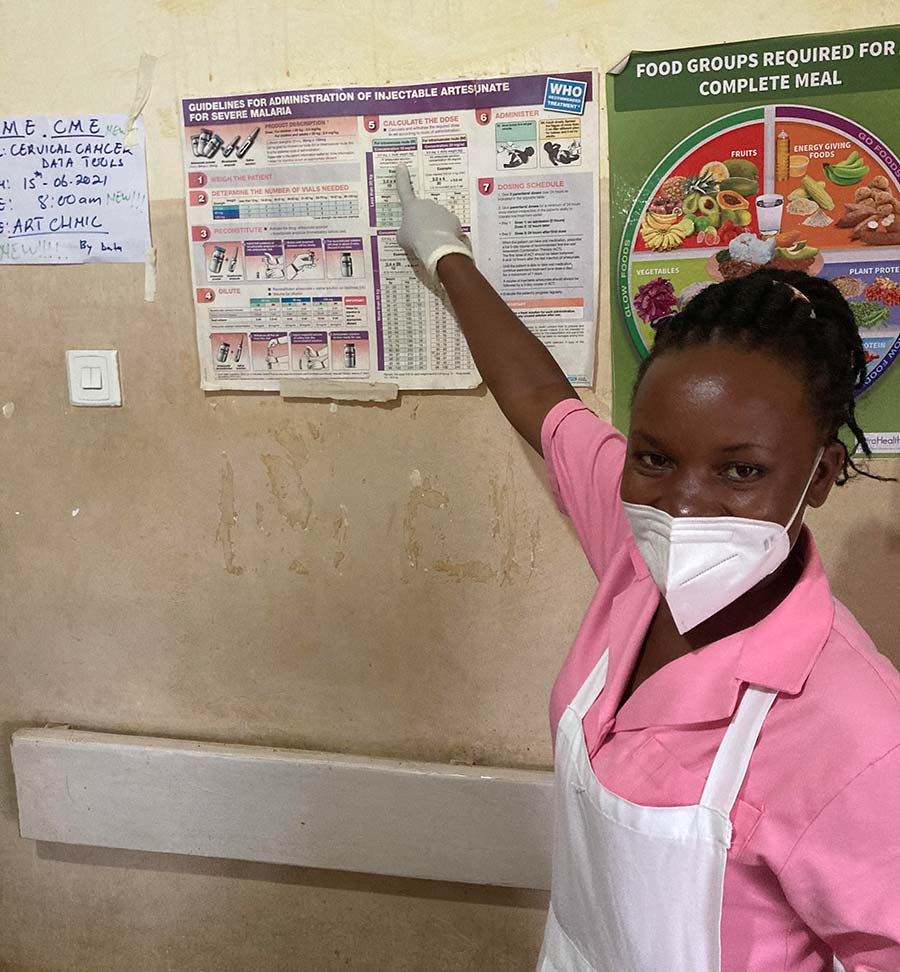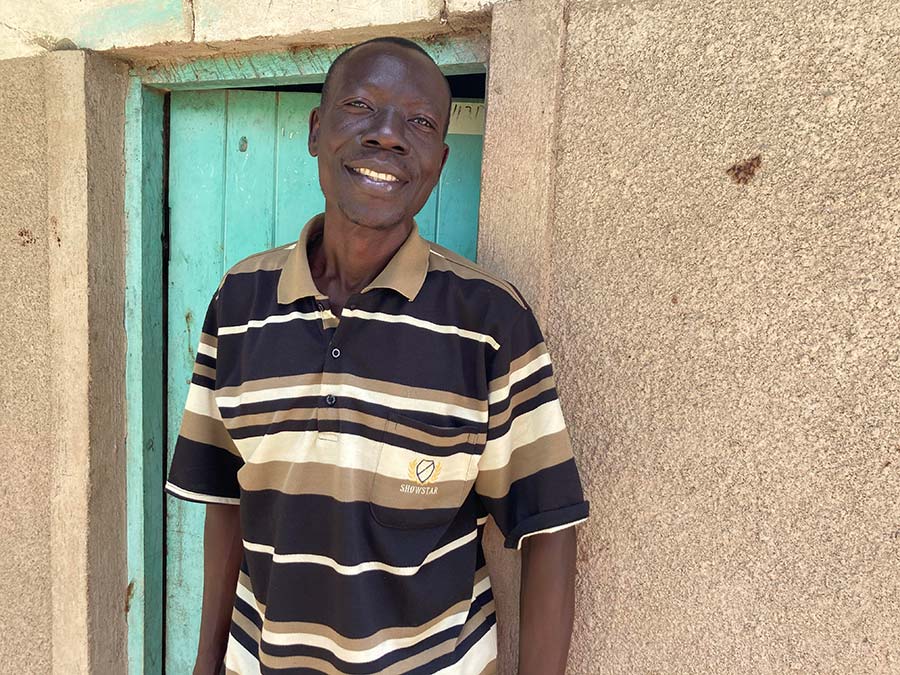“I will definitely take the vaccine”: High demand for COVID-19 vaccines in Uganda
While there was some initial reluctance to get vaccinated against COVID-19 in Eastern Uganda, attitudes are changing fast.
- 26 July 2021
- 3 min read
- by Joseph Ochieno

Leonita Amoit never seems rushed, even when navigating between a ward, a consultation desk and the young lady she had sent to buy gloves, all while talking about the change in perceptions around the COVID-19 vaccine.
Amoit is a nurse at Nagongera Health Centre IV, located in a small border town of the same name in Eastern Uganda. She is one of the heroic health workers saving lives on the frontline of COVID-19.
“Before the second lockdown, uptake of vaccines was low,” Amoit adds. “But now, people ask us every day whether we have received additional doses of the vaccine.”
“There was a time when people did not want to come near me because they thought I would give them COVID-19 since I was interacting with and treating patients,” she says. “Many did not want to be vaccinated because they thought this was a trick by the government and the drug companies.”

Photo credits/Joseph Ochieno
But, as a result of awareness campaigns, evidence that the vaccine works and the COVID-19 wave hitting the country, there has been a change in perception in Nagongera, creating a scramble for vaccines.
“Before the second lockdown, uptake of vaccines was low,” Amoit adds. “But now, people ask us every day whether we have received additional doses of the vaccine.”
73-year-old Alex Owino has made the five-mile bicycle ride from Poliecha village at least twice to check whether vaccines were available. He received his first shot of the vaccine in May and was due for the second one in July 2021. Fully masked, he rides away promising to keep safe, saying that he would be back.
Living near the health centre is Moses Okello, a grandfather of three children. He was initially reluctant to get vaccinated, despite his own nephew being one of the local government officials responsible for public awareness and monitoring.
He now regrets it. His wife recently caught COVID-19 but was among the lucky ones to have successfully battled the disease – a mild form – with relatively minimal treatment. She is now fully recovered.
Have you read?
“I am very lucky,” Okello says. “It could have been worse for us as a family. Many people have died around here due to COVID-19, some of them stronger than I. I will definitely take the vaccine when it is available.”

Photo credits/Joseph Ochieno
Okello’s nephew, David Oketch, says that some people didn’t take the disease as seriously during the first wave, despite the awareness campaigns. “I do see a great difference now,” he says.
“People are responding well, regularly asking about the next rollout phase. There are many like my previously reluctant uncle. I am confident that the people will respond with zeal when the vaccines are available. We also still encourage them to report to the health centre, should they feel ill, in the meantime, while we await guidance from the government.”
Oketch’s optimism is supported by new research showing a significantly higher proportion of people in low- and middle-income countries are willing to get vaccinated against COVID-19 than in higher-income countries like the USA and Russia. The challenge now is getting vaccines to them.
More from Joseph Ochieno
Recommended for you





